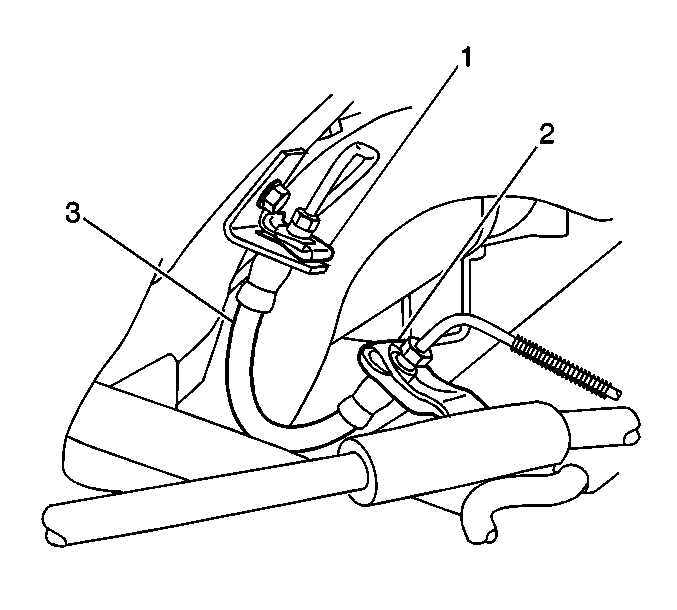Removal Procedure
- Raise and suitably support the vehicle. Refer to Lifting and Jacking the Vehicle in General Information.
- Remove the tire and the wheel. Refer to Wheel Removal in Tires and Wheels.
- Clean dirt and foreign material from the brake hoses and fittings.
- Remove the brake pipes from the brake hose (3)
- Remove the retainer clips (1, 2) from the brake hose at the brackets.
- Remove the brake hose from the vehicle.

Caution: Do not move the vehicle until a firm brake pedal is obtained. Air in the brake system can cause loss of brakes with possible personal injury.
Notice: Brake hoses should not be crimped at any point to prevent loss of brake fluid from any component.
Do not bend the brake pipes or the brackets.
Installation Procedure
- Install the brake hose (3) into the brackets.
- Install the retainer clips (1, 2) onto the hose fittings at the brackets.
- Connect the brake pipes to the brake hose (3).
- Install the tire and wheel. Refer to Wheel Installation in Tires and Wheels.
- Lower the vehicle.
- Bleed the brakes. Refer to Hydraulic Brake System Bleeding .

There should be no kinks in the hose.
Notice: Use the correct fastener in the correct location. Replacement fasteners must be the correct part number for that application. Fasteners requiring replacement or fasteners requiring the use of thread locking compound or sealant are identified in the service procedure. Do not use paints, lubricants, or corrosion inhibitors on fasteners or fastener joint surfaces unless specified. These coatings affect fastener torque and joint clamping force and may damage the fastener. Use the correct tightening sequence and specifications when installing fasteners in order to avoid damage to parts and systems.
Tighten
Tighten the brake pipe fittings to 23 N·m (17 lb ft).
